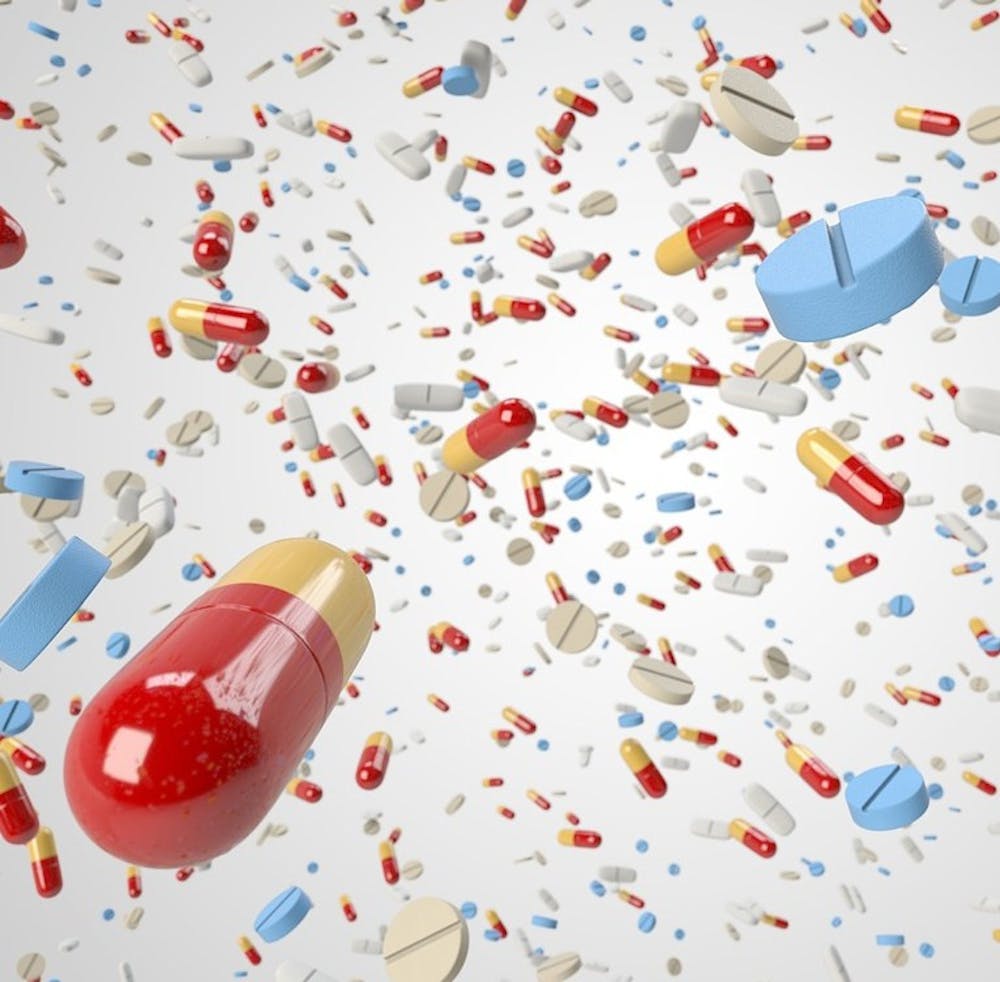By: Jackie Dutkanych
This week, GreenHawks Media presents its first Academic Series, a feature of written pieces from Miami students interested in sustainability. These students were all enrolled in Professor Scott Johnston’s IES 274 class, Introduction to the Environment and Sustainability, in the fall. See the bottom of each article to learn more about its author. Enjoy!Understandable concerns arise as increases in the concentration of prescription drugs and synthetic hormones in waterways affect the habitat of aquatic life. Certainly, our water waste goes through sewage-treatment plants, but these were originally created to separate water from solid waste. There is a lack of knowledge of proper medication disposal, and with around half of the American population taking prescription drugs daily, these treatment plants cannot completely eliminate all of the antibiotics, detergents, antidepressants, antioxidants, steroids and synthetic hormones that get washed or flushed away.
While humans can prevent dangerous drug combinations from reading the black box labels on prescriptions, fish are getting exposed to a mixed cocktail of prescription drugs. The side effects on fish are beginning to show through things like abnormal activity and blood levels. In Sweden, a concentrated study was published in Nature in 2013 to test the effects of an anti-anxiety medication that frequently shows up in their waterways, Oxazepam, on a perch species. The researchers found that the fish exposed to Oxazepam ate more, exhibited more aggressive behavior and became significantly less social compared to other wild European perch fish.
Here in the United States, a 2002 study by the United States Geological Survey (USGS) found levels of prescription drugs like Prozac, Zoloft and numerous oral contraceptives in the blood of fish in over 30 states across the country. Some fish were found with such significant drug-blood concentrations that their dosages would be able to treat a human. These drugs not only alter brain activity, but they also affect the development of the fish's body. This research by USGS proved that the presence of Prozac in a mussel’s bloodstream can affect its reproductive organs. On a larger scale, the U.S. Environmental Protection Agency released a report in 2009 confirming that different varieties of prescriptions present in high concentrations in national waterways have incorporated themselves into the tissues of different fish species. This is known as bioaccumulation.
These chemical changes cause strange abnormalities in aquatic life, coining a new term for the developing species: the Intersex fish. A 2006 National Public Radio interview explored the term and its impact on the nation's Potomac River. More recently, though, a 2016 Ecotoxicology and Environmental Safety study in the northeastern United States made frightening conclusions about male smallmouth bass. The researchers found that female eggs are now growing inside more than 50 percent of male smallmouth bass testes, which is known as an endocrine disruption. When these male smallmouth bass fish start to develop ovaries, they still produce sperm, but significantly less than normal. The fish are still able to reproduce, but their efforts are generally unsuccessful. Researchers have found these intersex fish in Mississippi, Colorando and Colombia. The USGS performed research of its own on the species as well. Not only are these pharmaceuticals changing the fish’s genetic makeup, but the drugs are also lowering their chances to fight against parasites and bacteria. Overall, this affects their survival rate.
While there is not enough research yet on what the consumption of these fish will do to humans, this is still something to be mindful of. In the meantime, to help prevent this endocrine disruption in fish species, people must stop flushing excess pharmaceuticals must down the toilet; rather, these products should be taken to a local pharmacy for proper disposable. These indisputable facts show how improper disposal of medications is impacting aquatic life. This pressing problem needs to be addressed, as its effects can begin to impact our own lives.
Jackie Dutkanych was born and raised in Chicago, Illinois. As a sophomore, her enthusiasm about the environment has continued to grow through her education at Miami University. She strives to enlighten the public about small changes they can make that will help protect our delicate ecosystems. Jackie enjoys going to music festivals, swimming and doing yoga.

